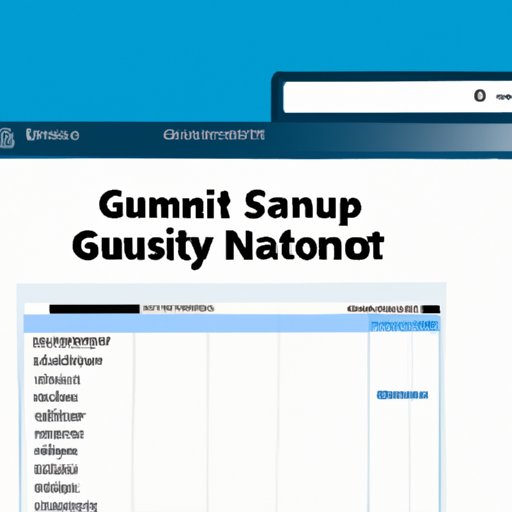Introduction
Starting a business can be a daunting task, especially when there is limited access to capital and financing. Fortunately, there are numerous grants available for entrepreneurs to help them get their business up and running. Grants are essentially free money that can be used to fund a business’s startup costs, operational costs, and more. But how do you get a grant to start a business? In this article, we will explore the steps involved in obtaining a business grant.
Research Government and Private Grants Available for Businesses
The first step in getting a grant to start a business is to research the various government and private grants available. There are a variety of grants available for different types of businesses, so it’s important to understand which ones are applicable to your business model. To start, explore the federal government’s Small Business Administration (SBA) website, which provides information on grants for small businesses.
You should also look into state and local governments, as well as private foundations, to see if they offer grants for businesses. Many of these organizations have specific requirements for applicants, so make sure you read the eligibility criteria carefully before applying. Additionally, there are numerous online resources that list grants for businesses, such as GrantWatch and Grants.gov. These websites provide updated information on grants available across the country.

Develop a Business Plan to Demonstrate Need for Funding
Once you’ve identified potential sources of funding, the next step is to develop a comprehensive business plan. This document is essential for demonstrating to grant providers why your business deserves funding. A business plan should include an executive summary, market analysis, competitive analysis, operations plan, financial projections, and more. It’s important to take the time to create a thorough plan that paints a clear picture of your business’s needs and goals.
It’s also helpful to consult a business lawyer or accountant to ensure that you’re including all the necessary information and that your business plan meets any legal requirements. Furthermore, many grant providers require applicants to submit a detailed business plan, so make sure to check the application process for each grant you’re interested in.

Submit Grant Applications with Supporting Documentation
Once you’ve developed a business plan, the next step is to submit grant applications with supporting documentation. This includes a copy of your business plan, financial statements, tax returns, and any other relevant documentation requested by the grant provider. It’s also important to review the application instructions carefully to make sure you’re providing all the required information.
In addition to submitting the application, you may also need to prepare a grant proposal. A grant proposal is a written document that outlines the purpose of your project and how it fits within the grant provider’s objectives. It should also include information about your business, the budget for the project, and the expected outcomes. Make sure to thoroughly research the grant provider’s objectives and tailor your proposal accordingly.
Network with Other Businesses to Learn About Potential Grants
Networking is another great way to find out about potential grants for your business. Connecting with other businesses in your industry can provide valuable insight into what grants are available and the requirements for applying. Additionally, attending events such as trade shows and conferences can help you meet potential partners and investors who may be able to assist you in finding grants.
Social media is also an excellent resource for finding grant opportunities. Join relevant groups, follow grant providers on Twitter, or use hashtags to search for grant-related posts. Additionally, many grant providers use social media to advertise their programs, so make sure to stay up-to-date with the latest news.

Seek Advice from Professional Grant Writers or Consultants
If you’re having difficulty finding suitable grants or preparing grant proposals, you may want to consider hiring a professional grant writer or consultant. These professionals have extensive experience in the grant writing process and can help you identify potential grant opportunities, develop a comprehensive grant proposal, and submit the application. Hiring a professional can be expensive, but it may be worth it if it increases your chances of getting the grant.
When looking for a grant writer or consultant, make sure to do your research. Check references and read reviews to find someone with a proven track record of success. Additionally, ask for samples of their work to get an idea of their writing style and quality. Lastly, make sure to discuss fees upfront and get a written agreement outlining the scope of work and payment terms.
Conclusion
Getting a grant to start a business is a challenging but achievable goal. The key is to research available grants, develop a comprehensive business plan, submit grant applications with supporting documents, network with other businesses, and seek advice from professional grant writers or consultants. With the right preparation and diligence, you can increase your chances of obtaining the funding you need to get your business off the ground.
(Note: Is this article not meeting your expectations? Do you have knowledge or insights to share? Unlock new opportunities and expand your reach by joining our authors team. Click Registration to join us and share your expertise with our readers.)
